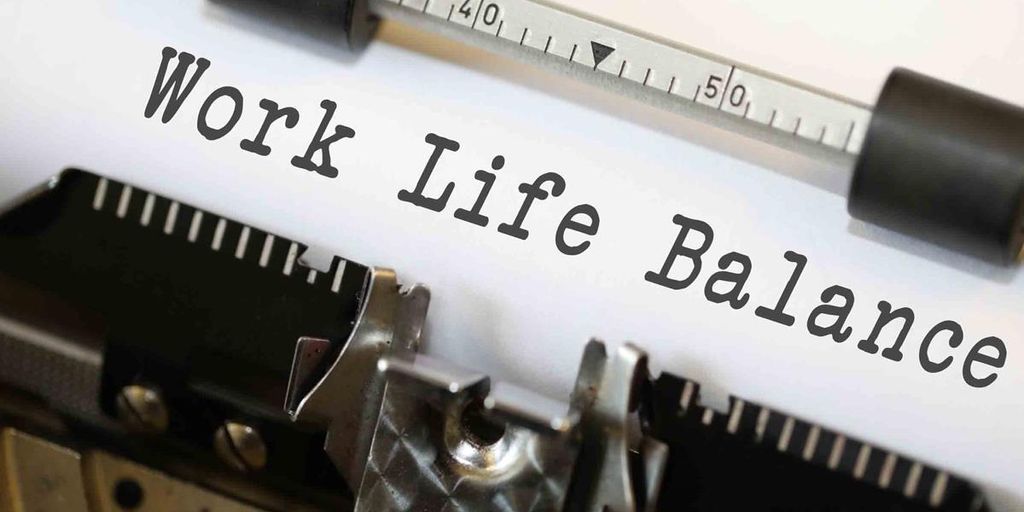
In today’s fast-paced world, achieving a harmonious balance between professional responsibilities and personal life is more crucial than ever. The quest for work-life balance is a universal challenge, affecting individuals across various professions and life stages. This article delves into actionable tips to help you master work-life balance, enhancing your productivity, well-being, and overall happiness.
Key Takeaways
- Understanding the importance of work-life balance is essential for mental health and long-term benefits.
- Setting clear boundaries between work and personal life can help maintain balance and prevent burnout.
- Effective time management strategies, such as prioritizing tasks and scheduling downtime, are crucial for maintaining balance.
- Self-care, including physical health, mental well-being, and emotional resilience, plays a significant role in achieving work-life balance.
- Building a support system with family, workplace allies, and professional help can provide the necessary support to maintain balance.
Understanding the Importance of Work-Life Balance
Defining Work-Life Balance
When we think of work-life balance, we often envision a scale with work on one side and personal life on the other. However, it’s important to note that achieving work-life balance is not just about dividing your time equally between the two. It’s about finding harmony and integration between the different aspects of your life.
The Impact on Mental Health
A healthy work-life balance reduces stress levels, prevents anxiety and depression, and increases overall happiness by fostering a sense of improved mental health. Balancing work and personal life is crucial for maintaining mental well-being.
Long-term Benefits
Work-life balance is important for both employees and employers. A healthy balance can lead to many great benefits, including:
- Fewer health problems: Stress-related illnesses are less likely to occur.
- Increased productivity: Employees are more focused and motivated.
- Better relationships: Both personal and professional relationships thrive.
Achieving work-life balance is an ongoing process that requires self-reflection, setting boundaries, and making conscious choices to prioritize different aspects of your life.
Setting Boundaries Between Work and Personal Life
Imagine your work and personal life as two separate planets that occasionally intersect. Establishing boundaries helps prevent the collision of these worlds. When you finish work for the day, switch off your work-related devices and create a designated space for personal activities.
Effective Time Management Strategies
Mastering effective time management is crucial for achieving a harmonious work-life balance. By prioritizing tasks, using productivity tools, and scheduling downtime, you can ensure that both your professional and personal lives receive the attention they deserve.
The Role of Self-Care in Achieving Balance
Self-care is a cornerstone of achieving a harmonious work-life balance. It encompasses a routine that integrates physical, mental, and emotional wellness into the fabric of everyday life. When we speak of a self-care routine, we are referring to practices that help maintain equilibrium and prevent burnout.
Physical Health
Prioritizing physical health is essential for maintaining energy and productivity. Regular exercise, a balanced diet, and adequate sleep are fundamental components. Emphasizing self-care in this way ensures that your body is well-equipped to handle daily stresses.
Mental Well-being
Mental well-being is just as important as physical health. Engaging in activities that stimulate the mind, such as reading, puzzles, or learning new skills, can enhance cognitive function and reduce stress. Carving out time for personal relaxation is vital for maintaining mental equilibrium.
Emotional Resilience
Emotional resilience involves being in tune with your emotions and managing them effectively. Practices such as journaling, talking to a therapist, or engaging in hobbies can help build emotional strength. Maintaining healthy habits and being mindful of your emotional state are key to achieving a balanced life.
Remember, achieving work-life balance is an ongoing process that requires conscious effort and self-reflection. By implementing these strategies and making them a part of your daily routine, you can create a solid foundation for a balanced and fulfilling life.
Building a Support System
Family Support
Seeking support isn’t a sign of weakness; it’s a strategy for success. Family members can provide emotional and practical assistance, making it easier to manage both work and personal responsibilities. Whether it’s a conversation with a trusted family member or seeking guidance from a mentor, reaching out can provide essential insights and encouragement along your work-life balancing journey.
Workplace Allies
Creating a supportive work environment is crucial. Imagine your workplace as a warm embrace, where collaboration and camaraderie flourish. Employers can foster a supportive work environment by promoting teamwork, recognizing and rewarding work-life balance efforts, and encouraging open communication. Building a support system within your team can greatly lighten your workload and reduce stress.
Professional Help
Sometimes, professional help is necessary to navigate the complexities of work-life balance. This can include seeking advice from a career coach, therapist, or counselor. Professional guidance can offer tailored strategies to help you achieve a harmonious life. Remember, there is no universal approach for creating a work-life balance; each individual is different, and the design of their experiences needs to be tailored to them.
Building a support system is like spotting an oasis in the distance and reaching out for help. There’s no shame in seeking support from loved ones, colleagues, or professionals when you need it.
Adapting to Changing Circumstances
In today’s dynamic world, being adaptable to changing circumstances is crucial. Embracing flexibility in your work arrangements can help you maintain a healthy work-life balance. This might involve negotiating remote work options, adjusting your work hours, or even exploring different roles within your organization. The key is to remain open to change and willing to adjust your strategies as needed.
Life is full of transitions, whether it’s starting a new job, moving to a new city, or experiencing a significant personal event. During these times, it’s important to reassess your priorities and make necessary adjustments to your work-life balance. Individuality plays a significant role here, as each person’s needs and circumstances are unique. By staying attuned to your own needs, you can navigate these transitions more smoothly.
Adapting to change also means committing to continuous learning and growth. This could involve taking up new courses, attending workshops, or simply staying updated with industry trends. By investing in your personal and professional development, you not only enhance your skills but also build resilience against future changes. Remember, the journey of balancing work and life is ongoing, and being proactive in your growth can make this journey more manageable.
Incorporating Mindfulness and Relaxation Techniques

Meditation Practices
Meditation is a powerful tool for achieving a state of calm and focus. Incorporating mindfulness meditation into your daily routine can significantly impact your mental health. Start with just a few minutes each day and gradually increase the duration as you become more comfortable. This practice helps in releasing tension in the body and promoting a sense of calm and relaxation.
Breathing Exercises
Breathing exercises are quick stress relief techniques for work and life. Simple practices like deep breathing can help you manage stress effectively. Try the 4-7-8 technique: inhale for 4 seconds, hold for 7 seconds, and exhale for 8 seconds. This method can be done anywhere and anytime you need to regain your composure.
Mindful Breaks
Taking mindful breaks throughout your day can help maintain your focus and productivity. Step away from your work, even if just for a few minutes, to clear your mind. Engage in activities that promote physical, mental, and emotional well-being, such as stretching, walking, or simply sitting quietly. These breaks can provide a sense of peace and tranquility, helping you return to your tasks with renewed energy.
Regularly practicing these techniques can lead to long-term benefits, including improved mental health and a deeper sense of fulfillment.
Conclusion
Achieving work-life balance is an ongoing journey that requires dedication, flexibility, and self-awareness. By implementing the strategies discussed in this article, you can create a harmonious life that balances professional responsibilities with personal fulfillment. Remember, the key to mastering work-life balance lies in understanding your unique needs and making conscious choices that align with your values and goals. Embrace the journey, prioritize self-care, and don’t hesitate to seek support when needed. With these tools, you can cultivate a life that is not only productive but also deeply satisfying and joyful.
Frequently Asked Questions
What is work-life balance?
Work-life balance refers to the equilibrium between personal life and professional responsibilities. It involves managing your time and energy to ensure both areas are given appropriate attention.
Why is work-life balance important?
Maintaining a work-life balance is crucial for mental health, productivity, and overall well-being. It helps prevent burnout, reduces stress, and allows for a more fulfilling life.
How can I set boundaries between work and personal life?
You can set boundaries by creating physical spaces designated for work and personal activities, establishing specific work hours, and communicating your limits to colleagues and family members.
What are some effective time management strategies?
Effective time management strategies include prioritizing tasks, using productivity tools like calendars and to-do lists, and scheduling regular downtime to recharge.
How does self-care contribute to work-life balance?
Self-care is essential for maintaining work-life balance as it ensures you are physically, mentally, and emotionally healthy. This includes regular exercise, mindfulness practices, and taking time for hobbies and relaxation.
What should I do if my work-life balance is disrupted by unforeseen circumstances?
Flexibility is key. Adapt your work arrangements, seek support from family and colleagues, and prioritize self-care. Continuous learning and growth can also help you navigate changes more effectively.






